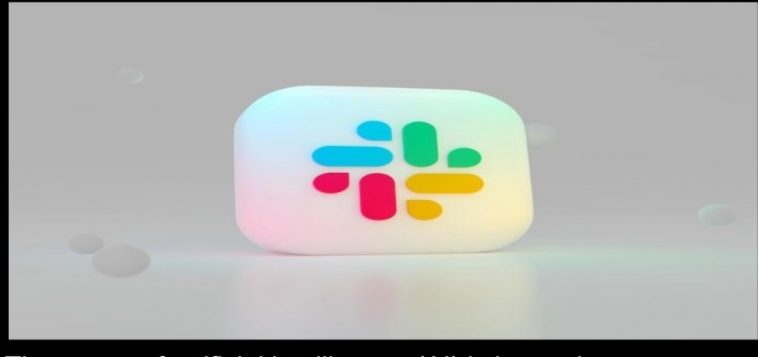The power of artificial intelligence (AI) is becoming increasingly significant, and tech companies are taking notice. ChatGPT has become the go-to AI chatbot for many, prompting other tech giants, such as Microsoft and Samsung, to integrate AI into their brands.
In a recent announcement, Slack revealed its partnership with OpenAI to introduce ChatGPT to its users.
At the Salesforce World Tour event in New York City, Rob Seaman, Slack’s product manager, disclosed this exciting development.
The company is evolving its platform by putting AI at the forefront of its user experience. This move will make it easier for users to communicate, access information, and build workflows. With ChatGPT now integrated into Slack, users can ask the AI for help when responding to a colleague, streamlining the communication process.
By integrating AI into its platform, Slack is no longer just a communication platform.
Companies can now link directly to enterprise applications, eliminating the need to switch tasks. This integration is set to revolutionize the way we work and communicate, making it more efficient and productive than ever before.
Slack GPT is a generative AI built natively into Slack, providing the platform with a unique advantage in generative AI. Because companies use Slack to transmit messages, a wealth of institutional knowledge is already on the platform. This information includes messages, files, and clips shared daily, making it an excellent foundation for building AI models.
Slack GPT brings AI natively into the user experience, making it easier for customers to work more efficiently, communicate better, and learn faster. For example, AI-powered conversation summaries and writing assistance for composition will be directly available. AI-generated content for linked applications will also be a new feature, making it easier to create content for Slack Canvas, which is a valuable tool for businesses.
Developers can utilize the AI integration and build it into their workflows. This will allow them to connect with external applications and large language models to create customized generative AI experiences. The Workflow Builder with SlackGPT AI connectors will be available this summer, allowing customers to easily connect ChatGPT or Claude to a workflow or build their custom connectors.
The third feature of Slack’s AI integration is the addition of EinsteinGPT, Salesforce’s version of generative AI, announced in March. This feature will allow employees to directly ask questions about Salesforce content within Slack, such as which users are most likely to churn or which accounts are most likely to buy.
Rob Seaman stated, “Slack is becoming the conversational interface for Salesforce. That’s bringing those EinsteinGPT-powered insights from the real-time customer data in Salesforce into Slack to enrich every team’s understanding of the customer.”
Overall, Slack’s integration of AI will make work more efficient, communication more effective, and learning faster. As AI continues to evolve, we can expect more companies to integrate it into their platforms, further enhancing the user experience.
Click here to read the original article





